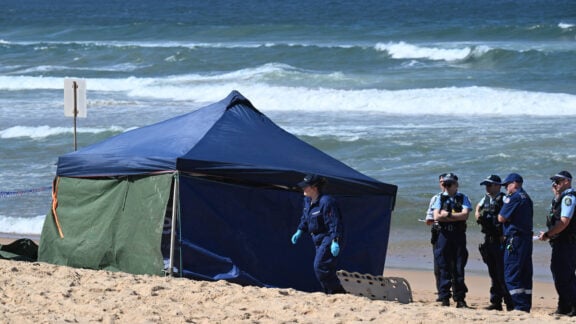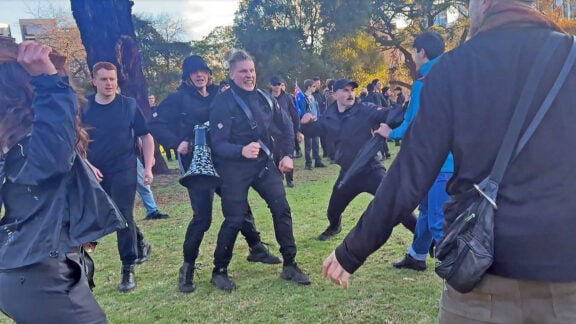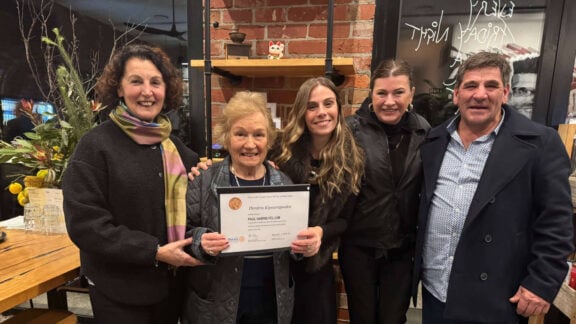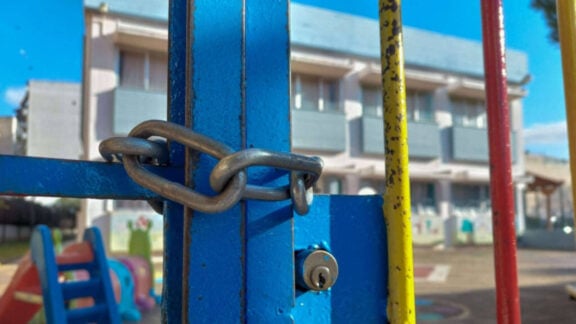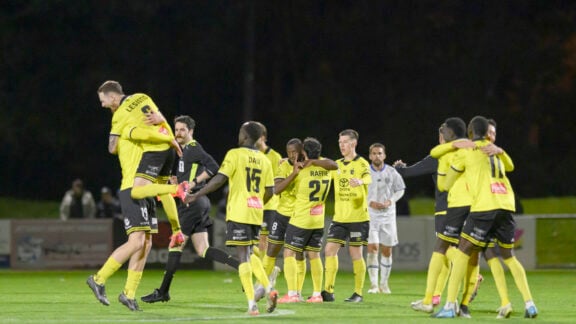Today’s by-election for the state seat of Melbourne is shaping up to be a two-horse race between Labor Greek Australian Jennifer Kanis and the Greens Cathy Oke.
“I am feeling positive,” Ms Kanis tells Neos Kosmos but adds, “I think it will be a close election.”
Ms Kanis has been working hard on the campaign trail for a “Labor win” but says “it will be close”.
But without a Liberal candidate in the by-election, Dr Nick Economou, senior lecturer in politics at Monash University, says voters may be influenced by Federal government relationships and issues when casting today’s vote.
“Given that there is no Liberal candidate there is no scope for a voter in Melbourne to demonstrate his or her opposition to the things that the Baillieu government is doing,” he tells Neos Kosmos.
Dr Economou says that this election is purely a battle between Labor and the Greens to see who will win Melbourne. He says that without a Liberal candidate, the candidates can’t approach this by-election as “an exercise in criticism of the Baillieu government”.
“You have two opposition parties with basically nothing to talk about and all of the tensions that are occurring in the relationships between Labor and Green in Canberra are leeching into the state contest and so that’s why there is enormous interest in what will happen on Saturday.”
Because there is no representation made by the Baillieu government, he predicts that the voter may today find themselves influenced by Federal issues – such as asylum seekers and carbon tax – issues that have nothing to do with state politics but a hand that has been forced due to no real scope when making today’s decision.
And due to this, he says Julie Gillard may face another political loss.
“If the Greens are successful in the state seat of Melbourne, it will feed into the volatility of the caucus situation where the federal Labor caucus is just absolutely fearful with what’s happening to Labors’ votes under [Gillard’s] leadership.
“[Labor] is losing blue collar support to the coalition and it’s losing some of its inner city cosmopolitan white collar support to the Greens so this result might be another thing that adds to the leadership tensions in Canberra. So it makes it quite a significant by-election which is not bad when you consider Mr Baillieu’s representatives aren’t there.”
But Ms Kanis is quick to point out that a lot of the feedback she’s been receiving from voters in Melbourne are due to cuts made by the Baillieu government, particularly the cuts in the TAFE system.
“People are very concerned about the cuts and the impact they will have is far reaching. You’ll see not only students, but people who have lost their jobs and need to reskill will have fewer options now with TAFE courses and campuses closing and even speaking with grandparents who are worried about what their grandchildren will do so it’s something that has a wide impact on the electorate of Melbourne.”
Dr Nick Economou predicts a victory to the Greens but adds that it will be a “temporary victory”.
“At the next general election in 2014 when the Liberal party will put a candidate up and if the Liberal party directs its preferences to Labor as it did in the last general election, Labor will regain the seat.”
Advertisement
Federal politics leeches into the state election
Without a Liberal candidate, voters may be influenced by Federal issues when casting their vote in the Melbourne by-election

